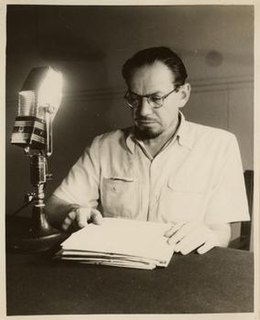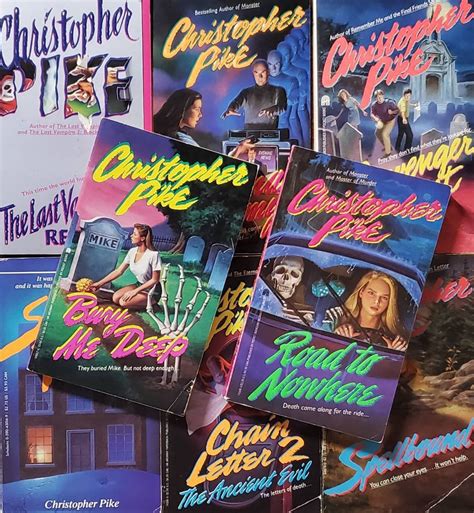A Quote by Daniel Handler
But we can also ask for something we are much more likely to get, and that is to find a person or two, somewhere in our travels, who will tell us that we are noble enough, whether it is true or not. We can ask for someone who will say, “You are noble enough,” and remind us of our good qualities when we have forgotten them, or cast them into doubt.
Related Quotes
It is not enough to say, 'We are Muslims and have an ideology or our own': we must also be in a position to show that our ideology is vital enough to withstand the pressure of the changing times, and to decided in what way the fact of our being Muslims will affect the course of our lives: in other words, we must find out whether Islam can offer us precise directives for the formation of our society, and whether its inspiration is strong enough in us to translate these directives into practice.
Relationships are mysterious. We doubt the positive qualities in others, seldom the negative. You will say to your partner: do you really love me? Are you sure you love me? You will ask this a dozen times and drive the person nuts. But you never ask: are you really mad at me? Are you sure you’re angry? When someone is angry, you don’t doubt it for a moment. Yet the reverse should be true. We should doubt the negative in life, and have faith in the positive.
It's not enough to have a dream, Unless you're willing to pursue it. It's not enough to know what's right, Unless you're strong enough to do it. It's not enough to learn the truth, Unless you also learn to live it. It's not enough to reach for love, Unless you care enough to give it Men who are resolved to find a way for themselves will always find opportunities enough; and if they do not find them, they will make them.
Let us be bold enough to ask ourselves as Christians whether the Church of the Lord Jesus in the United States has anything to say to our nation and its ideologies of materialism, possessiveness, and the worship of financial security. Are we courageous enough to be a sign of contradiction to consumerism through our living faith in Jesus Christ? Are we committed enough to his gospel to become a countercurrent to the drift?
We are told it will be of no use for us to ask this measure of justice--that the ballot be given to the women of our new possessions upon the same terms as to the men--because we shall not get it. It is not our business whether we are going to get it; our business is to make the demand.... Ask for the whole loaf and take what you can get.
The Americans say that we are ungrateful-but I ask them for heaven's sake, what should we be grateful to them for-for murdering our fathers and mothers?-Or do they wish us to return thanks to them for chaining and handcuffing us, branding us, cramming fire down our throats, or for keeping us in slavery, and beating us nearly or quite to death to make us work in ignorance and miseries, to support them and their families. They certainly think we are a gang of fools.
We who make stories know that we tell lies for a living. But they are good lies that say true things, and we owe it to our readers to build them as best we can. Because somewhere out there is someone who needs that story. Someone who will grow up with a different landscape, who without that story will be a different person. And who with that story may have hope, or wisdom, or kindness, or comfort. And that is why we write.
True friends see who we really are, hear our words and the feelings behind them, hold us in the safe harbor of their embrace, and accept us as we are. Good friends mirror our best back to us, forgive us our worst, and believe we will evolve into wise, wacky, and wonderful old people. Dear friends give us their undivided attention, encourage us to laugh, and entice us into silliness. And we do the same for them. A true friend gives us the courage to be ourselves because he or she is with us always and in all ways. In the safety of such friendships, our hearts can fully open.
The possessions God allows us to have are intended for our use, not our enjoyment. Trying to squeeze something out of them that was never in them in the first place is a futile endeavor. A cow's udders, gently pressed, will yield sweet milk, nourishing and refreshing. Applying more and more pressure will not produce greater quantities of milk. We lose the good of material things by expecting too much from them. Those who try hardest to please themselves with earthly goods find the least satisfaction in them.
I think all of us have really got to redouble our efforts, first of all, to pay attention to the K-12 crisis. The sad fact is that I can look at your zip code and tell whether you're going to get a good education. That's not fair. And secondly, I hope that all of us who were fortunate enough to have benefited will put our time, our resources and our efforts into making sure that kids, particularly kids without means, have a way to achieve.
The great Norwegian playwright, Henrik Ibsen, wrote, "One of these days, the younger generation will come knocking at my door." The future is knocking at our door right now. Make no mistake, the next generation will ask us one of two questions. Either they will ask: "What were you thinking; why didn't you act?" Or they will ask instead: "How did you find the moral courage to rise and successfully resolve a crisis that so many said was impossible to solve?

































